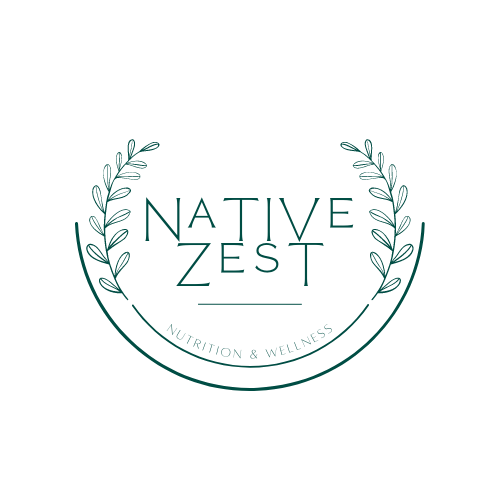
The Mediterranean Diet
The Mediterranean diet is about more than just what you eat; it is also about following a lifestyle that is traditional to the surrounding area of the Mediterranean.

Interest was sparked by finding countries surrounding the Mediterranean higher life expectancy and lower rates of non-communicable diseases such as cardiovascular disease, cancer and diabetes.
It can be tricky to define because there is no ‘one’ Mediterranean diet but it centers around the following foods:

The main dairy sources are from cheese and yogurt and are often sourced from goat or sheep’s milk because cow’s milk is not as popular in the Mediterranean. [1]
In addition to these foods; moderate wine consumption, regular physical activity, adequate rest, conviviality and buying seasonal products are all a part of the Mediterranean diet.
We’re often in a state of stress throughout the day, including when we sit down to eat. An important aspect of the Mediterranean diet is eating in a relaxed environment that fosters digestion, increases nutrient absorption and encourages a healthier relationship with food. [2]
Health Benefits
Many of the leading diseases in the US today are due to chronic inflammation and oxidative stress.
Studies have shown that following the Mediterranean diet is associated with reductions in cardiovascular mortality, cancer incidence and mortality, incidence of Parkinson’s and Alzheimers, and overall mortality. [3]
Researchers have found the Mediterranean diet may improve health throughout the body in the following areas:
 The Heart
The Heart
- Reduce insulin sensitivity
- Reduce triglycerides, total cholesterol and specifically LDL cholesterol, or more commonly known as ‘bad’ cholesterol
- Decrease total cardiovascular events compared to a low-fat diet
Why? Evidence suggest that increased nut intake and omega-3 fatty acids are correlated with improved cardiovascular outcomes.
Increased fiber intake is associated with beneficial effects on vascular disease. [4]
 The Brain
The Brain
- Decrease risk of dementia and Alzheimer’s disease.
- Lower incidence of cognitive impairment overall and and slower rates of cognitive decline.
- Improve stroke outcomes, which may directly or indirectly promote lower dementia risk.
Why? – Higher consumption of Omega-3 fatty acids is associated with reduced risk of cognitive decline. [5]
 The Body
The Body
- Reduce inflammation and oxidative stress
- Lower blood sugar and help the body maintain better insulin levelsWhy? – Red wine and extra virgin olive oil are high in phenolic compounds, which are powerful antioxidants. Due to the substantial antioxidant content in the diet, it supports protecting the body against free radicals that are damaging to cells, contribute to disease and the aging process.Resveratrol specifically is very beneficial and it is found in the skin of grapes and peanuts, therefore it is concentrated in red wine. [6,7]
References:
1. Arós F, Estruch R, Arós F, Estruch R. Mediterranean Diet and Cardiovascular Prevention. Rev Esp Cardiol. 2013;66(10):771-774. doi:10.1016/j.rec.2013.04.025.
2. Estruch R, Salas-Salvadó J. Towards an even healthier Mediterranean diet. Nutr Metab Cardiovasc Dis NMCD. 2013;23(12):1163-1166. doi:10.1016/j.numecd.2013.09.003
3.Healthy diet in adults – UpToDate. Accessed March 7, 2019.
4.Lipid lowering with diet or dietary supplements – UpToDate. Accessed October 16, 2018.
5. Prevention of dementia – UpToDate. Accessed March 13, 2019.
6. 11 Health Benefits of Extra Virgin Olive Oil That You Can’t Ignore. Olive Wellness Inst. https://olivewellnessinstitute.org/article/11-health-benefits-of-extra-virgin-olive-oil-that-you-cant-ignore/. Accessed March 13, 2019.
7. Is Red Wine Good for Your Health? The Spruce Eats. https://www.thespruceeats.com/red-wine-resveratrol-health-benefits-3511275. Accessed March 13, 2019.





